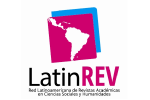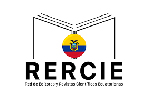Consumption of the new pornography in adolescents of the Cuenca canton and its relationship with sexual-affective behaviors, sexual violence and gender violence against women, in the years 2020, 2021 and 2022 at the University of Cuenca
DOI:
https://doi.org/10.18537/iuris.19.02.04Keywords:
pornography, critical, feminist analysis, good practices, investigative challengesAbstract
This work offers a feminist critical analysis of the research project “Consumption of new pornography in adolescents in the canton of Cuenca and its relationship with sexual-affective behaviors, sexual violence, and gender violence against women.” The objective is to complement the main project by identifying
methodological and theoretical obstacles and highlighting good practices from
a gender perspective. The critical analysis, based on feminist theories, examines
possible deficiencies in the conceptualization and execution of the study. The
research seeks to provide a deeper understanding of the intersections between
gender, sexuality, and pornography consumption in adolescents, promoting
more inclusive and reflective approaches.
Downloads
References
Bernabé, F. N. (2019). Androcentrismo, ciencia y filosofía de la ciencia. Revista de humanidades de Valparaíso, (14), 287-313.
Cuero Montenegro, A. Y. (2019). ¿Es posible una intervención feminista descolonial? Una reflexión desde la experiencia y la práctica política antirracista. Millcayac – Revista Digital de Ciencias Sociales, 6(10), 21-40.
Everardo (coordinadoras). Investigación feminista. Epistemología, metodología y representaciones sociales. Revista Mexicana de Sociología, 77(1), 157-168.
Facultad de Jurisprudencia, Ciencias Políticas y Sociales. (2022). Consumo de la nueva pornografía en adolescentes del cantón Cuenca y su relación con los comportamientos sexo-afectivos, la violencia sexual y la violencia de género contra las mujeres, en los años 2020, 2021 y 2022. Universidad de Cuenca.
Harding, S. (2006). Science and Social Inequality: Feminist and Postcolonial Issues. University of Illinois Press.
Llivichuzhca Pillco, A. del R., & López Pérez, R. (2023). Poder y género: carencias y dilemas. Andamios, Revista de Investigación Social, 20(52).
Merlyn, M., Jayo, L., Ortiz, D., & Moreta-Herrera, R. (2020). Consumo de pornografía y su impacto en actitudes y conductas en estudiantes universitarios. Psicodebate. Psicología, Cultura y Sociedad, 20(2), 59-76. Pontificia Universidad de Buenos Aires.
Mohajan, H. K. (2022). An overview on the feminism and its categories. Research and Advances in Education, 1(3), 11-26. Link
Pérez, S. (2023). Una guía práctica para integrar la perspectiva de género en la investigación. Universitat Oberta de Catalunya.
Silvestre Cabrera, M., López Belloso, M., & Royo Prieto, R. (2020). La aplicación de la Feminist Standpoint Theory en la investigación social. Investigaciones Feministas, 11(2), 307-318.
Spring, Ú. (2015). Norma Blazquez Graf, Fátima Flores Palacios y Maribel Ríos
Tokumura, O. (2015). Pornografía Online: Una nueva adicción. Madrid, España:Editorial Voz de papel.
Torrado Martín-Palomino, E., Gutiérrez Barroso, J., Romero Morales, Y., & González Ramos
Vivero Marín, C. E. (2016). Género y teoría literaria feminista: herramientas de análisis para la aproximación social desde la literatura. Sincronía, (70), 114-134.
Zunino, E., & Guzzetti, L. (2018). La intervención social en clave feminista. Aportes de las teorías feministas para la intervención en lo social. Debate Público. Reflexión de Trabajo Social, 8(15-16), Universidad de Buenos Aires. Facultad de Ciencias Sociales. Carrera de Trabajo Social.






